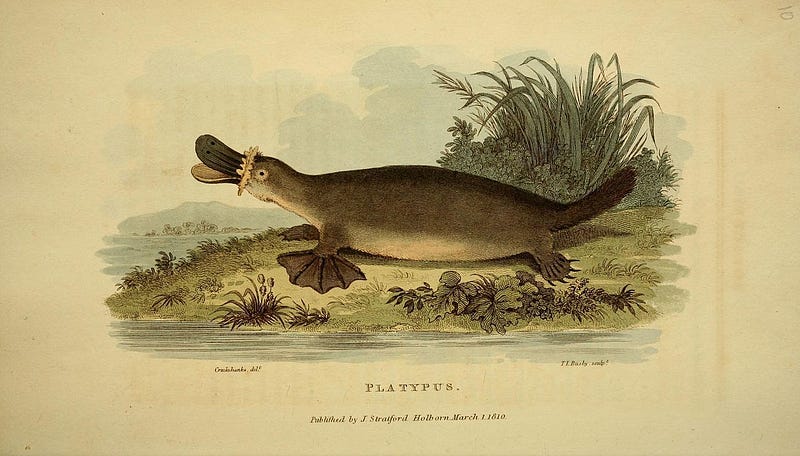Anaxagoras: The Philosopher of Gunk and Cosmic Order
Written on
Chapter 1: Anaxagoras’s Background
Anaxagoras, one of the earliest Greek scientists, is known for his distinctive view of the universe as a complex mixture of elements.

Born around 500 BCE in Clazomenae, present-day Turkey, Anaxagoras came from a wealthy family. At about twenty, he moved to Athens, with varying accounts suggesting he left due to concerns that wealth and political power might hinder his quest for knowledge. Diogenes Laërtius recounts a story highlighting Anaxagoras's dedication to understanding nature over public affairs. When asked about his concern for his country, he pointed to the heavens, indicating his focus on the cosmos.
Section 1.1: The Astronomical Controversy
Anaxagoras spent around thirty years in Athens, developing friendships with notable figures like the general Pericles. Some sources claim he taught Socrates, or at least Archelaus, who later instructed Socrates. However, his astronomical views brought him into conflict with authorities; he was accused of impiety.
His assertion that the sun was a large, hot metallic body, rather than a divine entity, offended Athenian religious beliefs. Fortunately, Pericles defended him during his trial, utilizing his skills in rhetoric learned from his partner Aspasia. Instead of facing the death penalty, Anaxagoras was exiled to Lampsacus, where he lived out his days honored by locals who erected a statue in his memory. Following his death around 428 BCE, the anniversary was celebrated as a holiday for children.
Subsection 1.1.1: The Nature of His Philosophy
Anaxagoras’s philosophical ideas are often seen as perplexing, especially given the fragmented nature of his texts. Nevertheless, we can distill his worldview from these remnants.
Chapter 2: The Concept of Gunk
Anaxagoras grappled with Parmenides’s assertion that nothing can emerge from nothing, which presents a conflict with everyday experiences. Parmenides resolved this through a distinction between the ultimate reality and appearances, but Anaxagoras sought to explain the process of emergence.
The first video titled "Introduction to Anaxagoras | Presocratic Philosophy" offers a succinct overview of his life and philosophical contributions.
Anaxagoras proposed that before specific objects existed, there was a primordial mixture, referred to as "gunk," which was the fundamental substance of the universe. This mixture contained everything, intertwined to such an extent that if observers were present, they would find nothing distinct to see.
Anaxagoras stated:
> "All things were together, unlimited both in amount and in smallness."
> — Anaxagoras, Fragment B1

This primordial gunk stands in contrast to atomism, as proposed by Democritus, who suggested that matter could be divided until reaching indivisible atoms. Anaxagoras viewed his gunk as a dynamic, ever-messy mix, where newly emerged entities—like planets and animals—retain the essence of the original mixture.
He asserted:
> "In all things, there are many things present, equal in number, both in the greater and in the lesser of the things being separated off."
> — Anaxagoras, Fragment B6
For Anaxagoras, everything contained the essence of everything else, implying that no entity is entirely separate from the original gunk.
Section 2.1: The Role of Nous
Anaxagoras faced a critical question: how does this separation from primordial gunk occur? His answer was "Nous," or mind, which he claimed is the only unmixed entity in existence. This singular mind possesses the power to organize the chaotic primordial substance.
He explained:
> "And whatever sorts of things were going to be... all these Nous set in order."
> — Anaxagoras, Fragment B6
This concept introduces a significant philosophical distinction between mind and matter, a division that would influence subsequent philosophical discussions.
The second video titled "Anaxagoras" delves deeper into his theories and their implications, offering further insights into his legacy.
Further Reading
Understanding Anaxagoras can be challenging, but a few resources may help clarify his ideas:
- Anna Marmodoro's Anaxagoras’s Metaphysics (Oxford University Press, 2017) provides a detailed exploration of his philosophy.
- Anaxagoras of Clazomenae: Fragments and Testimonia, translated by Patricia Curd (University of Toronto Press, 2007), offers a comprehensive view of his fragments.
Online, you can read Anna Marmodoro's article on the OUP blog, which explains the significance of "gunk" in philosophical discourse.
Join Looking for Wisdom
Confused by Confucius? Stumped by Socrates? Perplexed by Plato? Discover the world's greatest thinkers with FREE resources at…
join.lookingforwisdom.com